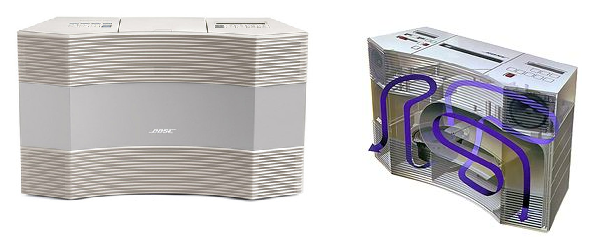Alan Surrey
Member
- Messages
- 1,171
Does anyone here know why bluetooth speakers, the whole idea of which seems so unpromising, sound so good?
At my exercise class a little bluetooth speaker, the size of an instant coffee jar, fills the entire church hall with perfectly acceptable sound. I'm not suggesting equivalence to a PA system and you must not confuse it with the system used by your favourite rock band at Wembley but it produced quite enough musical, squawk free, buzz free, largely boom free sound over quite a broad frequency range to do the job so well that it is worth remarking about.
How on earth is this sound quality possible? I have a few ideas, but no actual knowledge of bluetooth speakers.
Mobile phone sending to this little battery powered speaker via bluetooth.
I have heard other bluetooth speakers that sound good too, so the sound quality is not exclusive to this particular speaker. (Wonderboom. Unpromising name isn't it?)
At my exercise class a little bluetooth speaker, the size of an instant coffee jar, fills the entire church hall with perfectly acceptable sound. I'm not suggesting equivalence to a PA system and you must not confuse it with the system used by your favourite rock band at Wembley but it produced quite enough musical, squawk free, buzz free, largely boom free sound over quite a broad frequency range to do the job so well that it is worth remarking about.
How on earth is this sound quality possible? I have a few ideas, but no actual knowledge of bluetooth speakers.
Mobile phone sending to this little battery powered speaker via bluetooth.
I have heard other bluetooth speakers that sound good too, so the sound quality is not exclusive to this particular speaker. (Wonderboom. Unpromising name isn't it?)


